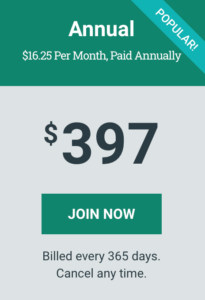
How Net Neutrality Impacts Your Subscription Business
Source: Bigstock
Net neutrality has been a hot topic of conversation for at least the last three years when former President Barack Obama urged regulators to protect net neutrality. Things quieted down in 2015 after the Federal Communications Commission (FCC) did just that, but there were opponents to the regulations. Now, under President Donald Trump's administration, the topic is back in the spotlight, and it is an important one that impacts consumers and businesses alike, particularly subsc...
HELLO!
This premium article is exclusively reserved for Subscription Insider PRO members.
Want access to premium member-only content like this article? Plus, conference discounts and other benefits? We deliver the information you need, for improved decision-making, skills, and subscription business profitability. Check out these membership options!
Learn more about Subscription Insider PRO memberships!
Already a Subscription Insider PRO Member?
Please Log-In Here!









